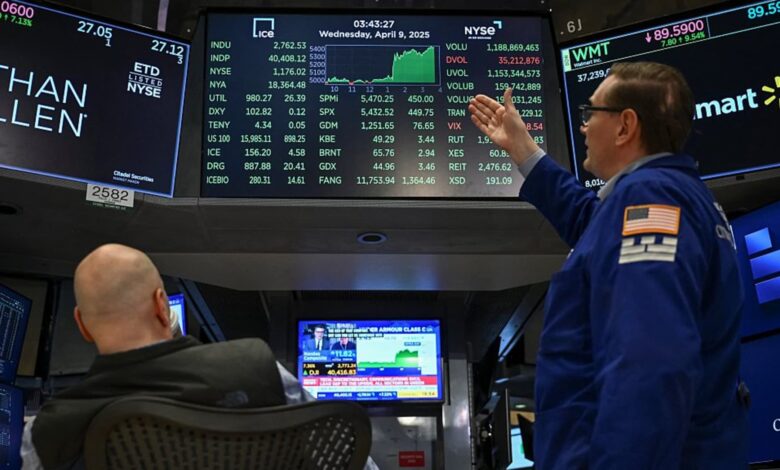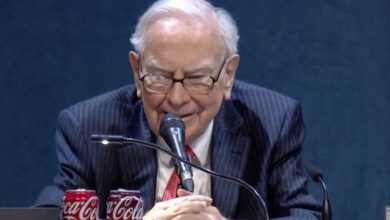Foreign investors worry about U.S. reliability: Ex-Bridgewater strat

Global investors are currently reevaluating their exposure to U.S. markets, with economic expert Rebecca Patterson suggesting that they are gradually reducing their investments in U.S. assets. This shift in strategy could have significant implications for the financial markets, as highlighted by Patterson in a recent interview on CNBC’s “Fast Money.”
According to Patterson, discussions at the World Bank and International Monetary Fund meetings in Washington last week revealed growing concerns among foreign investors about the reliability of the U.S. as a trading partner. Beyond just the impact of tariffs imposed by the Trump administration, there is a broader sense of unease about the potential use of capital markets as a tool to achieve economic objectives.
This skepticism is leading foreign investors to reconsider their U.S. holdings, which amounted to over $31 trillion as of last June, based on data from the U.S. Treasury. The significant increase in foreign investments in U.S. assets over the past year has been driven by the strong performance of U.S. markets, particularly in sectors like technology and artificial intelligence.
However, Patterson warns that even a slight reduction in foreign participation could have a destabilizing effect on U.S. markets. She illustrates this point by suggesting that a 2% decrease in foreign investments could result in a $1.2 trillion outflow from U.S. stocks and bonds. While this represents a relatively small percentage of the overall market capitalization, it could still have a noticeable impact on market dynamics.
The potential shift in investor sentiment is reflected in the performance of U.S. stocks compared to global equities in 2025. While the S&P 500 has declined by 4.7% so far this year, European and Asian markets have seen modest gains. The STOXX 600 index in Europe has risen by 5.7%, while the MSCI AC Asia Pacific Index has increased by 2.4%, according to FactSet data.
Patterson emphasizes that the process of reallocating investments away from U.S. assets will likely be gradual, as investment committees and boards deliberate on the best course of action. However, she cautions that this trend could lead to a gradual erosion of support for U.S. markets, as investors seek out alternative opportunities or asset classes like gold.
In conclusion, the evolving dynamics of global investment flows could pose challenges for U.S. markets in the coming months. Foreign investors’ shifting attitudes towards U.S. assets underscore the need for market participants to stay attuned to changing trends and adapt their investment strategies accordingly.





